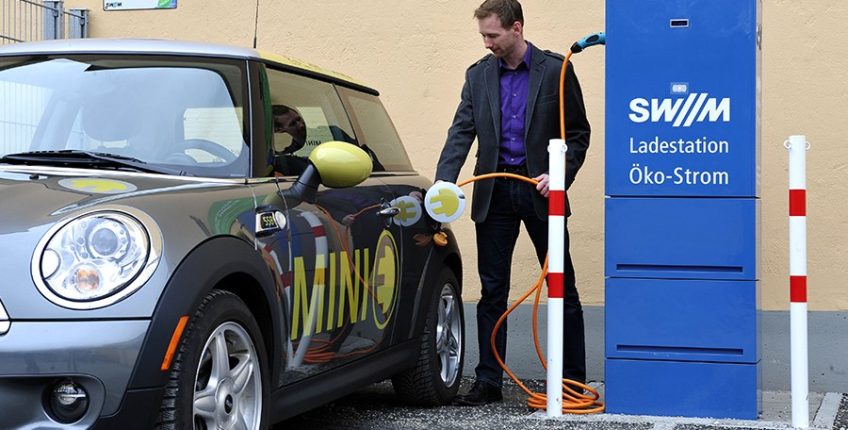Surveys
- For 96 % of private users the range of the MINI E is sufficient for daily use
- 82 % of the Bavarian Red Cross outpatient care service’s daily journeys could be made using the MINI E
- For 88 % of private users, charging at a charging point is a more pleasant experience than going to a filling station
- 84 % of private users would like to charge their vehicles exclusively with electricity from renewable energy sources
- There are calls for a clear reduction in charging times at public charging posts
Charging system
A DC-based fast-charging system was developed and trialled: only one charging socket is required on the vehicle for AC or DC charging. This approach was presented to international standards bodies (IEC) in order to create corresponding areas of market potential through standardisation. With consistent use of the current standardisation, no negative effects on power grid quality need be expected due to electromobility. The additional load on the grid from the demand and the required amount of power is transferable in the medium term (until 2025) within the scope of the usual development and rehabilitation measures.
Legal aspects
Providing suitable sites for public charging posts proved, in part, to be problematic. As at the time of the planning stage the general legal conditions did not permit the exclusive utilisation of car parks as charging points (non-discrimination), charging posts were set up in semi-public places. Sometimes significant costs were associated with this for space management.
Funding Code
03KP535A-B
